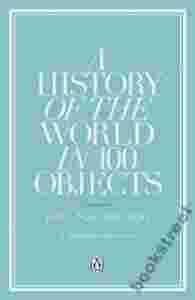|
Neil MacGregor's ''A History of the World in 100
Objects'' takes a bold, original approach to human
history, exploring past civilizations through the
objects that defined them. Encompassing a grand sweep of
human history, ''A History of the World in 100 Objects''
begins with one of the earliest surviving objects made
by human hands, a chopping tool from the Olduvai gorge
in Africa, and ends with objects which characterise the
world we live in today. Seen through MacGregor's eyes,
history is a kaleidoscope - shifting, interconnected,
constantly surprising, and shaping our world today in
ways that most of us have never imagined. A stone pillar
tells us about a great Indian emperor preaching
tolerance to his people; Spanish pieces of eight tell us
about the beginning of a global currency; and an early
Victorian tea-set speaks to us about the impact of
empire. An intellectual and visual feast, this is one of
the most engrossing and unusual history books published
in years. ''Brilliant, engagingly written, deeply
researched''. (Mary Beard, ''Guardian'').''A triumph:
hugely popular, and rightly lauded as one of the most
effective and intellectually ambitious initiatives in
the making of 'public history' for many decades''.
(''Sunday Telegraph''). ''Highly intelligent,
delightfully written and utterly absorbing''. (Timothy
Clifford, ''Spectator''). ''This is a story book, vivid
and witty, shining with insights, connections, shocks
and delights''. (Gillian Reynolds, ''Daily Telegraph'').
Neil MacGregor has been Director of the British Museum
since August 2002. His latest book, ''Shakespeare's
Restless World'' is an enthralling exploration of
Shakespeare's world, and of the minds of his audiences,
based on Neil MacGregor's new 20-part BBC Radio 4
series. MacGregor was previously Director of the
National Gallery in London from 1987 to 2002. |
|

